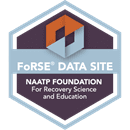Anxiety is something that every single one of us has experienced at some point in our lives. It’s a common reaction and response to certain situations and events. When we’re faced with anything uncertain or unknown, it’s pretty natural to feel nervous, worried, or uneasy. There isn’t anything wrong with being anxious from time to time, but anxiety can become much more than just an occasional response to certain conditions. For some, anxiety can become a persistent feeling. Anxiety can even grow to the point of being a disorder. In fact, it’s the most common mental health issue among adults, affecting over 40 million people.
Given how common anxiety is, especially for alcoholics and addicts, let’s take a closer look at anxiety in general and how we can use the tools of recovery to help us with anxiety issues.
The Issue With Anxiety
In some circumstances, anxiety is a normal reaction. Say that we’re in school and didn’t study as much as we should have, and we’re awaiting the results of an important exam. We’re probably going to feel pretty anxious as we wait for our grade. In the best-case scenario, we experience some anxiety for a short time and then we let it go. We don’t think about it too much, and a few days later we get our score on the exam.
This is an ideal situation, but it doesn’t always happen this way. The problem with anxiety is that sometimes it begins to grow. We cannot let it go and our anxiety gets worse and worse until we finally see the exam results.
In the worst-case scenario, which is unfortunately still common, the initial anxiety comes on so suddenly and strongly that we are paralyzed by it. This overwhelming wave is often referred to as an anxiety attack or panic attack. When anxiety takes hours or even days away from us, it can be a serious problem. Happily, there are some things we can do to help prevent anxiety issues from lowering our quality of life.
Seeking Help Is a Solution
When anxiety bothers us only every so often, or perhaps in appropriate circumstances our anxiety arises too strongly but it’s not an everyday problem for us, this doesn’t mean we should ignore it or try to tough it out. When there are healthy options available, we should explore them. Otherwise, we are limiting how healthy and happy we can be. For the anxiety issues we just described, it may be a good idea to begin seeing a therapist, counselor, or psychologist.
Routine, regular meetings where we can talk with a professional can help reduce or alleviate anxiety and will likely yield healthy coping mechanisms that we might not have found on our own. There should be no stigma about seeing a professional to help us talk through our feelings, especially troublesome anxiety. Those who engage with therapy regularly find they have better mental and emotional health, and we deserve the same.
If our anxiety is more extreme, occurs more often, or has more severe side effects, there is still help available to us. Sometimes anxiety can last for a long time. Sometimes it comes on and takes us over for no reason. Sometimes it causes physical issues like extreme stomach pain, difficulty breathing, or heart palpitations. If we’re experiencing anything like this with our anxiety, we should waste no time in seeing a psychiatrist. There are many treatments and medicines that can help immensely with anxiety of this level. Seeking professional psychiatric help, taking time to find the right treatment for us, and sticking to it can greatly reduce and manage our anxiety, so that we can go on living our best life.
Managing Anxiety in Recovery
If we pursue help from any of the avenues mentioned above, we still have our recovery to maintain. As we seek professional help for our anxiety, we will of course want to continue our recovery routine. Going to meetings, fellowshipping, being of service, and working the 12-Steps with a sponsor is our best bet for a healthier and happier life every day, no matter what. But the purpose of recovery is to fit us to be of maximum service to our fellows and our higher power, so that we can be happy, joyous, and free. This means that we should absolutely pursue help along professional lines when it is needed.
We can also receive additional help from things that are already part of the recovery program. If our anxiety allows us, we can find someone to be of service to. If we are able, we would surely benefit from fellowship. We must try the best we can to share openly in meetings, ask for help, and be honest with our sponsors and close friends. These things will also help our anxiety.
Paramount among tools in recovery are those found in the 11th-Step. Prayer and meditation can literally work miracles. When anxiety comes over us, stopping what we’re doing to sit in prayer or meditation can help snap us out of it (unless we are in the midst of an anxiety attack, of course). Regular, routine prayer and meditation help keep us more calm, clear, and present, potentially reducing our anxiety and allowing us to live life to the fullest. It’s definitely worth the effort.
Alcoholism and addiction have a perilously circuitous relationship with mental and emotional health disorders, including anxiety. Conditions like anxiety can appear as both causes and symptoms of alcohol and substance abuse. They can also worsen or heighten each other in an endless loop — anxiety exacerbates alcoholism, while alcoholism exacerbates anxiety. Thankfully, there are many effective options for treating anxiety. Visiting a psychologist and/or psychiatrist can provide immense help in a variety of ways. If you also suffer from alcoholism or addiction, many of the tools built into the 12-Step program of recovery can help reduce and manage anxiety as well. If you are struggling with alcoholism or addiction, with or without additional mental and emotional health issues, the 12-Step program can change your life just like it did for us. No matter how many times you have tried before, Jaywalker Lodge is here to help you find lasting recovery. Call us now at (866) 529-9255.



As Chief Executive Officer Bill provides leadership and manage all day-to-day operations of Jaywalker Lodge, an extended care residential addiction treatment program for adult men.





